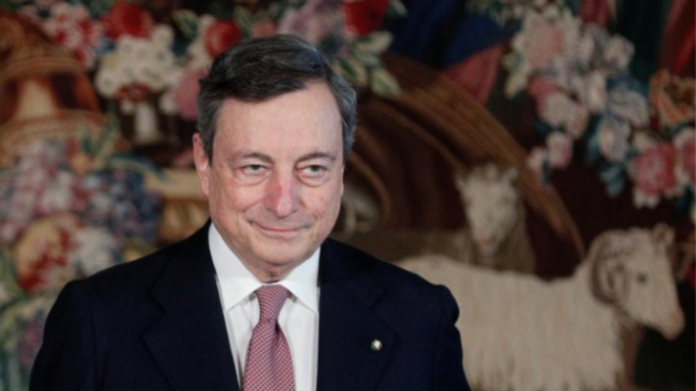
The new head of the Italian government, Mario Draghi, secured the vote of confidence of the Senate last night after presenting earlier in a rough outline a program of “reconstruction” of the country affected by a double health and economic crisis, pledging to “fight all inside”.
Draghi received 262 votes in favor against 40 against and two abstentions in the Senate, a result that is rather expected, given the extent of parliamentary support he has secured. Parliament will vote today and is also expected to give its confidence to the former president of the European Central Bank (ECB), as all parliamentary parties, with one exception – the far-right Brothers of Italy – are in favor.
“Like post-war governments, we have a responsibility to start rebuilding,” said the prime minister, who expects full legitimacy from today. “This is both our mission and that of the Italians: to leave a better and fairer country to our children and grandchildren.”
73-year-old Mario Draghi, a very discreet personality who went to a Jesuit school, succeeded Giuseppe Conte on Saturday, who was forced to resign after the spectacular explosion of his government, at a time when Italy is approaching the heavy milestone of 100,000 deaths. 19, while in 2020 it recorded one of the deepest recessions of GDP in the euro area (-8.9%).
“The basic task we are all called upon to do is to fight the pandemic (of the new coronavirus) by all means and to save the lives of our fellow citizens,” said Mr Draghi, with less than 1.3 million people out of the total. of Italy's 60 million people have received their vaccine doses.
“Once we have secured sufficient quantities of vaccines, the main challenge for us is to deliver them quickly and efficiently.”
The former President of the ECB also called for a closer “integration” of the European Union, which would lead to a “common public budget capable of supporting Member States in times of recession” , stressing the “irreversible choice of the euro” and stressing that “without Italy, there is no Europe “.
Mario Draghi, backed by a very heterogeneous alliance, ranging from the center-left to the far right of Matteo Salvini, also said he intended to “strengthen” Rome's “strategic” relations with France and Germany. .
The eurozone's third-largest economy, which lost 444,000 jobs in 2020, relies heavily on the manna of the European recovery plan, the disbursement of which is linked to the presentation in Brussels by April of a very detailed spending plan – mission which his government is called upon to carry out.
“We will have about 210 billion euros at our disposal for a period of six years. “These resources should be spent to improve the growth dynamics of our economy,” Mr Draghi said during his long-awaited forty-five-minute speech. He identified “renewable energy”, the “fight against air and water pollution”, the acquisition of “high-speed rail links”, the “production and distribution of hydrogen”, the “digitization” and the creation of mobile infrastructure as priorities. fifth generation telephony and telematics (5G).
Draghi also aims to modernize the public administration, reduce bureaucracy and improve the efficiency of the judiciary, which is one of the slowest in Europe.
His government is facing unresolved challenges, with entire sectors of the economy completely dependent on state support to survive. The new prime minister warned that Rome would not be able to support all businesses, nor all jobs “: ” Some will be called to change, even radically “.
Speaking again last night, Mario Draghi spoke in favor of making the redistribution of migrants and refugees to EU Member States mandatory. of immigrants, “ he said.
Faced with the arrival of tens of thousands of refugees and migrants, Rome has been asking Brussels for years now to renegotiate the Dublin Regulation, which stipulates that the countries of arrival are responsible for processing asylum applications.
After being given the mandate to form a government by President Sergio Matarella, Mario Draghi formed a majority of factions from the Democratic Party (PD, center-left) to Matteo Salvini's far-right Lega, passing the M5 Movement. anti-systemic “until he came to power). He formed a government with members of all factions and technocrats.
“Unity today is not a choice, unity is a duty,” said Mr Draghi, whose government debut was marked by an uproar over Health Minister Roberto Speranza's decision to announce a ban on Sunday night. ski resorts reopen on Monday.
The first brawls bode well for a rather rugged path for Mr Draghi, with Teresa Coratela, an analyst at the European Council on Foreign Relations (ECFR), saying: “We have a very strong government in terms of ministerial efficiency, but “with a very fragile political balance, with political interlocutors who change their minds and are not so credible,” he explains.
In any case, you will need to move fast. He can only rule for a maximum of two years; the next elections will be held in early 2023.




